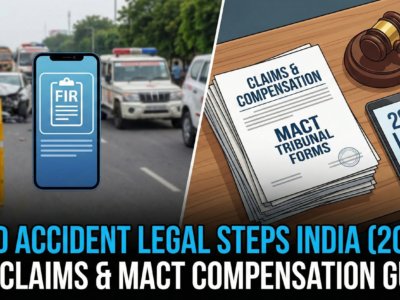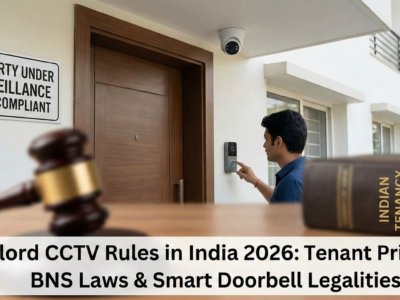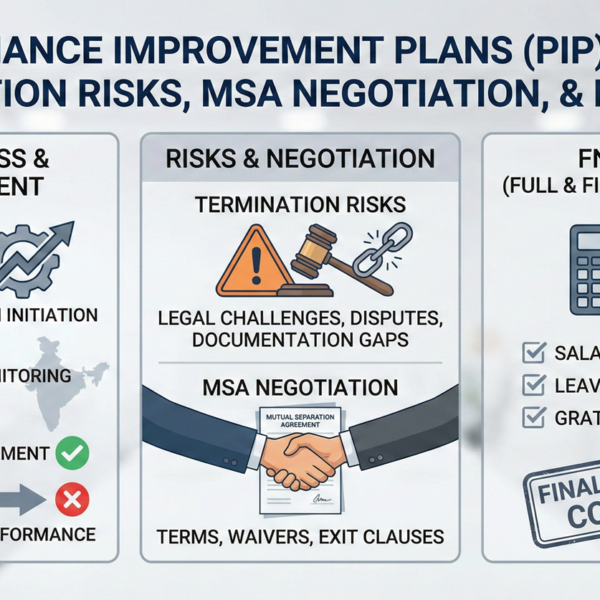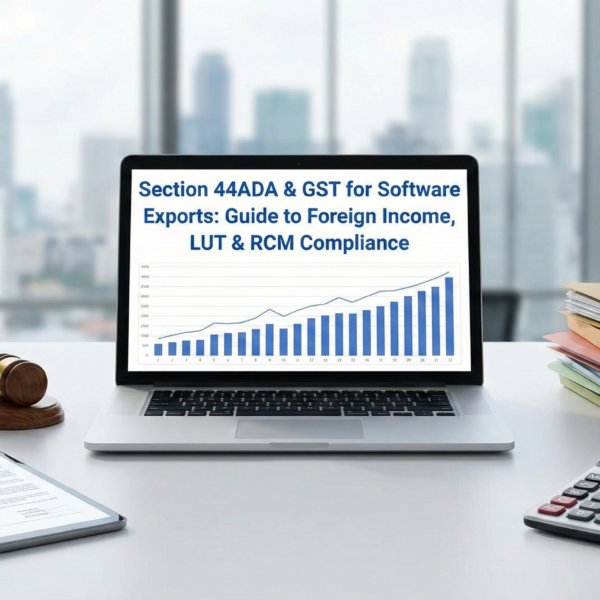You bought a top-floor flat based on the builder’s exciting verbal promise of exclusive roof rights, only to find it missing from your sale deed. It’s a frustrating and common scenario in India, leaving homebuyers feeling cheated. But a verbal promise, while hard to enforce for ownership, is powerful evidence of misrepresentation. This comprehensive guide will walk you through the strategic legal pivot from claiming the roof to claiming substantial monetary compensation. We’ll explore your best options like RERA and the Consumer Court, provide a step-by-step action plan, and even give you a sample legal notice to start your fight for justice.
Builder Promised You Roof Rights?
You're not alone. A verbal promise for the terrace feels like a great deal, but it's legally complex. This guide breaks down your rights and reveals the best path to justice.
The Law is Clear: Is the Roof Yours?
Before fighting for the promise, it's crucial to understand the default legal status of a building's roof in India. The law overwhelmingly sees it as a shared space, not a private asset.
The "Common Area" Doctrine
By default, the roof is for all residents. It's an "undivided interest" for shared use, like accessing water tanks or community antennas.
Codified by Law (RERA)
The Real Estate Act (RERA), 2016, explicitly defines "common terraces" as part of the common areas, making them legally unsaleable to one owner.
The Narrow Exception
Only a "private terrace" exclusively attached to your flat and inaccessible from common areas can be sold. This does not apply to the main building roof.
Why a Verbal Promise Isn't Enough
While oral agreements can be valid, Indian property law creates a fortress of statutory rules that make a verbal promise for roof rights impossible to enforce. Your registered Sale Deed is the final word.
-
High Burden of Proof: You must present strong, corroborative evidence (witnesses, emails) to prove the promise was even made.
-
Statutory Barriers: The Transfer of Property Act & Registration Act mandate that any rights in property worth >₹100 MUST be in a written, registered document.
-
Parol Evidence Rule: The court is legally barred from considering any prior oral promise that contradicts or adds to your final, written Sale Deed.
The Strategic Pivot
The case isn't about the builder's failure to give you the roof. It's about the illegal act of promising it in the first place to trick you into buying the flat.
This shift changes your goal from claiming ownership (impossible) to demanding monetary compensation for being misled (highly achievable).
The Legal Fortress: Key Acts You Should Know
Your case is built on the foundation of several powerful Indian laws. Understanding them helps you appreciate the strength of your position.
Transfer of Property Act, 1882
This is the bedrock. It mandates that any right in a property worth over ₹100 can only be transferred through a written, registered document. A verbal promise holds no water against this Act.
Indian Evidence Act, 1872
This Act contains the "Parol Evidence Rule." It means once a contract is written down (your Sale Deed), the court will not consider any prior verbal agreements that contradict it. The written word is final.
Consumer Protection Act, 2019
This is your shield. Making a false or misleading promise to sell a flat is defined as an "Unfair Trade Practice." This Act empowers you to seek compensation for being misled.
Voices from the Court: Landmark Judgements
You're not the first to face this. The Indian judiciary has consistently protected homebuyers in similar situations.
"A developer cannot sell or allocate exclusive rights to a common terrace, as it is an integral part of the common areas and facilities meant for the enjoyment of all flat owners."Based on principles from cases like Nahalchand Laloochand Pvt. Ltd. vs. Panchali Cooperative Housing Society Ltd.
This principle, upheld by the Supreme Court, confirms that builders have no legal right to sell the roof, making any promise to do so an inherently wrongful act.
Find Your Best Legal Pathway
You have several options, each with its own pros and cons. Use our interactive tools to compare them and find the best fit for your situation.
Filter by What Matters to You:
Forum Comparison Chart
| Feature | RERA | Consumer Court | Civil Court |
|---|---|---|---|
| Speed | Very Fast (Goal: 60 days) | Moderate (6-18 months) | Very Slow (5-15 years) |
| Cost | Very Low (Nominal Fee) | Low (Fixed Fee) | High (Percentage of claim) |
| Simplicity | Simple Procedure | Simplified Procedure | Very Complex (CPC, etc.) |
| Effectiveness | Very High (Specialized) | High (Pro-Consumer) | Low (Due to time/cost) |
| Primary Relief | Compensation, Penalties | Compensation, Refund | Damages, Injunctions |
A High-Risk Option: The Criminal Complaint
You could file an FIR for "Cheating" under IPC Section 420. This is an aggressive tactic that alleges the builder had dishonest intentions from the start. However, proving criminal intent is extremely difficult in a commercial dispute. This path can backfire, is costly, and should only be considered a last-resort pressure tactic after consulting with an experienced criminal lawyer.
Your 2-Step Action Plan
Don't delay. Taking these two immediate steps will build a strong foundation for your case and show the builder you are serious.
Step 1: Consolidate Your Evidence
Gather every piece of paper and digital communication. This is your arsenal. Collect the Sale Deed, payment receipts, emails, WhatsApp messages, and any project brochures. Note down the details of the verbal promise.
Step 2: Send a Formal Legal Notice
This is a mandatory first step. A lawyer-drafted notice officially documents your complaint, details the misrepresentation, and demands specific monetary compensation. It often leads to a settlement without going to court.
Your Legal Journey: A Step-by-Step Visual Guide
Follow this flowchart to understand the path from your initial action to a final resolution.
Gather all evidence: Sale Deed, messages, payment proofs.
Consult a lawyer and send a formal Legal Notice to the builder.
If fair, sign a Settlement Agreement. Case resolved.
Choose the best forum (RERA recommended).
File a complaint with RERA or Consumer Court.
Present your case and evidence before the authority.
Receive an order for monetary compensation.
Your First Weapon: Sample Legal Notice Template
Use this template as a starting point. It should be printed on your lawyer's letterhead and sent via Registered A.D. Post.
Registered A.D.
Dated: [Date]
To,
[Builder's Company Name],
[Registered Office Address of Builder],
[City, PIN Code]
Subject: Legal Notice for Misrepresentation, Unfair Trade Practice, and Deficiency in Service concerning Flat No. [Your Flat No.].
Ref: Your Sale Deed dated [Date of Sale Deed], registered as Document No. [Deed Number].
Sir,
Under the instructions and on behalf of my client, [Your Name], residing at [Your Full Address], I do hereby serve you with the following legal notice:
- That my client purchased Flat No. [Your Flat No.] on the top floor of your project named "[Project Name]" located at [Project Address], for a total consideration of Rs. [Total Amount Paid], which was paid in full.
- That during the pre-sale negotiations, you and your representatives repeatedly made a clear and unequivocal verbal promise to my client that exclusive rights to the roof/terrace adjacent to the said flat would be provided. This promise was a material inducement for my client to purchase the said top-floor flat, for which a premium was paid.
- That relying on your promise, my client entered into the Sale Agreement. However, the said promise of roof rights was conspicuously absent from the final Sale Deed, and you have subsequently denied my client these rights, in contravention of your pre-sale representations.
- That your act of promising exclusive rights to a common area, which is legally unsaleable under the RERA Act, 2016, and various judicial pronouncements, was a deliberate act of misrepresentation.
- That your actions constitute a clear case of "Unfair Trade Practice" and "Deficiency in Service" as defined under the Consumer Protection Act, 2019, and a violation of your obligations under the RERA Act, 2016.
I, therefore, through this notice, call upon you to pay my client a sum of Rs. [Amount of Compensation Claimed] as compensation for the financial loss, mental agony, and harassment caused by your false promises, within a period of 15 (fifteen) days from the receipt of this notice.
Failing which, my client shall be constrained to initiate appropriate legal proceedings against you in the Real Estate Regulatory Authority (RERA) and/or the Consumer Disputes Redressal Commission for the recovery of the said amount, entirely at your cost, risk, and consequences.
A copy of this notice is retained in my office for further action.
Yours faithfully,
(Signature)
[Lawyer's Name]
[Advocate/Law Firm]
[Lawyer's Address]
Important Disclaimer
This is a sample template for informational purposes only. The facts of your case are unique. It is strongly recommended that you consult a qualified property lawyer to draft and send a legal notice tailored to your specific situation and evidence.
Frequently Asked Questions
Here are answers to some common questions you might have.
What if the builder offers a settlement after I send a legal notice?
This is a positive outcome. If the offered amount is fair compensation for the premium you paid and the mental distress, you can accept it. Ensure any settlement is documented in a formal, written "Settlement Agreement" drafted by your lawyer before you withdraw any complaint.
Can other residents of my building stop me from using the roof even if I win a case?
↓
Yes. It's important to be clear: you cannot "win" the roof. The legal battle is for monetary compensation for being misled, not for ownership. The roof will remain a common area for all residents, and the Resident Welfare Association (RWA) will govern its use.
How much compensation can I realistically expect?
There's no fixed formula. It depends on factors like the premium price paid for the top-floor flat, the total value of the property, and evidence of mental harassment. A good lawyer can help you calculate a reasonable claim, which could include the price difference, interest on your investment, and damages for mental agony.









